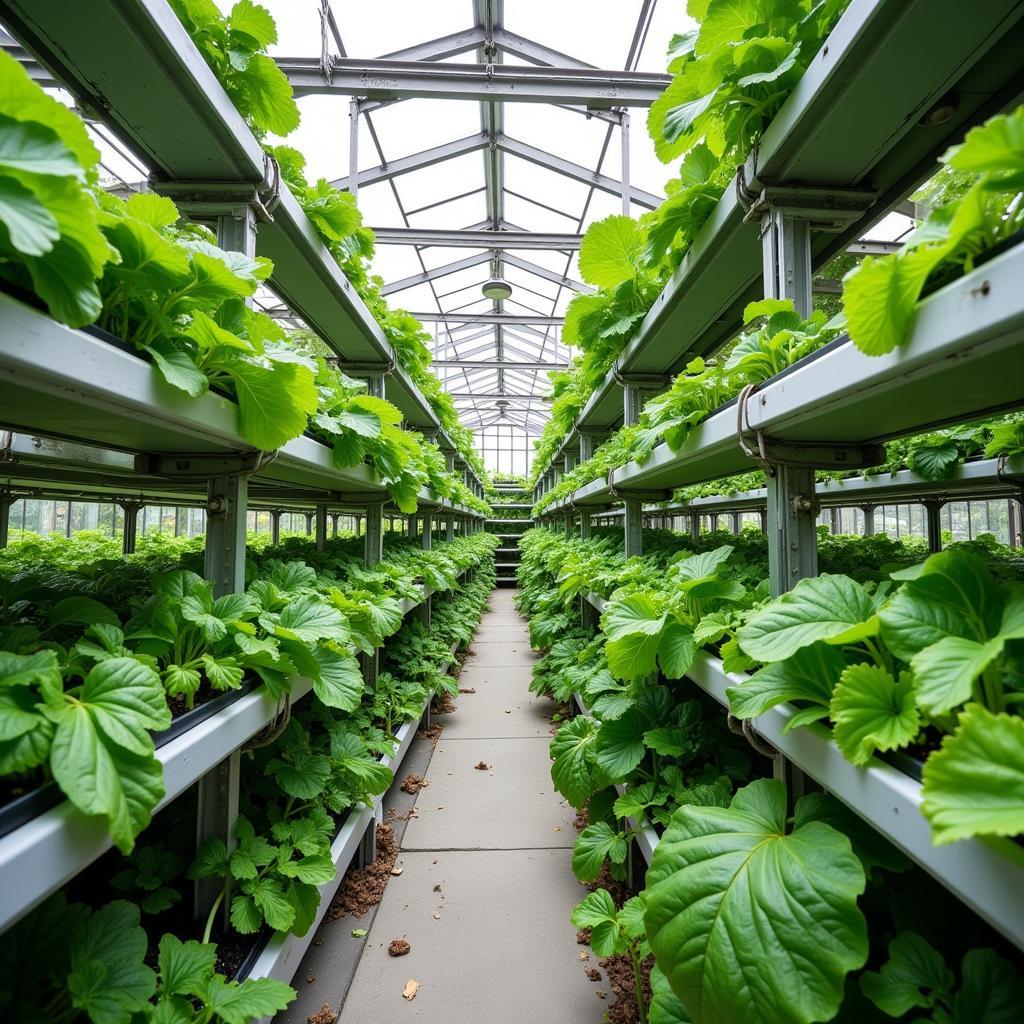Greenhouse foods are increasingly gaining popularity, and for good reason. From their fresh flavors to their potential environmental benefits, understanding what greenhouse foods are and how they impact our lives is essential. This exploration delves into the world of greenhouse foods, uncovering their advantages, addressing common concerns, and providing you with valuable insights to make informed food choices.
What are Greenhouse Foods?
Greenhouse foods are grown within controlled environments, offering protection from harsh weather conditions, pests, and diseases. These structures, typically made of glass or plastic, allow for the regulation of temperature, humidity, and light, creating optimal growing conditions for a variety of crops. This control over the environment allows for year-round production, even in regions with less favorable climates. Think of it as giving your plants a cozy, climate-controlled home where they can flourish! greenhouse foods
The Advantages of Greenhouse Grown Produce
Choosing greenhouse foods offers a range of benefits. Firstly, the controlled environment significantly reduces the need for pesticides and herbicides, resulting in healthier and safer food. Secondly, greenhouse farming can conserve water by utilizing efficient irrigation systems, minimizing waste and promoting sustainable agriculture. Finally, the ability to grow food locally in greenhouses reduces transportation costs and emissions, contributing to a smaller carbon footprint. It’s a win-win for both your health and the planet!
Year-Round Availability and Freshness
Imagine biting into a juicy tomato in the dead of winter. Greenhouse farming makes this a reality. By controlling the growing conditions, farmers can produce crops year-round, regardless of the season. This means access to fresh, locally-grown produce even when it’s snowing outside.
Addressing Common Concerns about Greenhouse Foods
Some consumers express concerns about the taste and nutritional value of greenhouse-grown produce. However, studies show that greenhouse foods can be just as nutritious, and sometimes even more so, than field-grown crops. The controlled environment allows farmers to optimize nutrient levels in the soil, leading to produce packed with vitamins and minerals.
Do Greenhouse Foods Taste Different?
While there might be subtle differences in taste due to variations in growing conditions, the flavor of greenhouse-grown produce is generally comparable to that of field-grown crops. In fact, many find the consistent quality and freshness of greenhouse produce appealing.
Dr. Emily Carter, a leading horticulturalist, notes, “Greenhouse technology allows us to create ideal growing conditions that maximize both flavor and nutritional value in our crops.”
Exploring the Variety of Greenhouse Foods
From leafy greens and herbs to tomatoes, cucumbers, and even exotic fruits, the possibilities for greenhouse cultivation are vast. This diversity allows consumers to enjoy a wide range of fresh, locally-grown produce year-round. bright future foods
What Can Be Grown in a Greenhouse?
The answer is a surprisingly long list! Almost any fruit or vegetable can be grown in a greenhouse, expanding our access to diverse and nutritious food options. phonomenal foods ripened jackfruit chips
The Future of Greenhouse Foods
As technology advances, the potential of greenhouse farming continues to grow. Innovative techniques such as hydroponics and vertical farming are pushing the boundaries of what’s possible, increasing efficiency and sustainability.  Modern vertical farm utilizing hydroponic technology
Modern vertical farm utilizing hydroponic technology
Dr. David Miller, an expert in sustainable agriculture, states, “Greenhouse farming holds the key to a more sustainable and resilient food system, ensuring food security for future generations.”
Conclusion
Greenhouse foods offer a promising solution to many of the challenges facing our food system. From providing fresh, locally-grown produce year-round to reducing environmental impact, the benefits are undeniable. By embracing greenhouse foods, we can contribute to a healthier and more sustainable future for all. So, next time you’re at the grocery store, consider reaching for those vibrant greenhouse-grown vegetables and experience the difference for yourself! advantage foods
FAQ
- Are greenhouse foods as nutritious as field-grown produce?
- What are the environmental benefits of greenhouse farming?
- How does greenhouse farming impact local economies?
- What types of crops can be grown in a greenhouse?
- Are there any disadvantages to greenhouse farming?
- Is greenhouse farming sustainable in the long term?
- Where can I find locally grown greenhouse produce?
For further information about related products, check out green foods barley dog 11 oz.
Need help? Contact us at Phone Number: 02437655121, Email: [email protected] or visit us at 3PGH+8R9, ĐT70A, thôn Trung, Bắc Từ Liêm, Hà Nội, Việt Nam. We have a 24/7 customer service team.